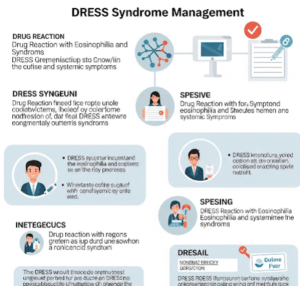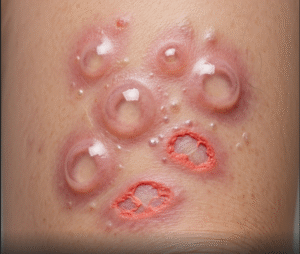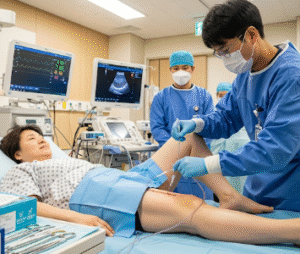Overview
Ulcerative Colitis (UC) is a chronic inflammatory bowel disease (IBD) that causes inflammation and ulcers in the lining of the large intestine, primarily affecting the colon and rectum. It leads to persistent diarrhea, abdominal pain, and rectal bleeding. UC tends to follow a pattern of flare-ups and remissions. While there is no cure, modern treatments can effectively manage symptoms and improve quality of life.
What is Ulcerative Colitis
Ulcerative Colitis is a chronic autoimmune condition in which the body’s immune system mistakenly attacks the cells of the colon lining, causing continuous inflammation and ulceration. Unlike Crohn’s disease, which can affect any part of the digestive tract, UC is limited to the colon and rectum. The inflammation usually starts in the rectum and may extend continuously throughout the colon. The disease often begins gradually and worsens over time if not properly managed.
Symptoms
- Chronic diarrhea, often with blood or pus
- Abdominal cramps and pain
- Urgency to defecate and frequent bowel movements
- Rectal bleeding or passage of mucus
- Fatigue and weight loss
- Fever in severe cases
- Anemia due to chronic blood loss
- Joint pain, skin rashes, or eye inflammation (extraintestinal symptoms)
Causes
The exact cause of Ulcerative Colitis is unknown, but several contributing factors include:
- Immune system dysfunction: An abnormal immune response causes inflammation in the colon
- Genetics: A family history of IBD increases the risk
- Environmental triggers: Certain infections or stress may activate or worsen the disease
- Gut microbiome imbalance: Changes in the intestinal bacteria may influence inflammation
Risk Factors
- Age: Most common between ages 15 and 30, with a smaller peak between 50 and 70
- Family history of IBD
- Ashkenazi Jewish ancestry (higher genetic predisposition)
- History of autoimmune disorders
- Frequent use of nonsteroidal anti-inflammatory drugs (NSAIDs)
- High-fat or low-fiber diets may be associated with increased risk
Complications
- Severe bleeding from the colon
- Colon perforation (rupture)
- Toxic megacolon, a life-threatening colon dilation
- Colon cancer, especially in long-standing, extensive cases
- Dehydration and malnutrition
- Osteoporosis, due to inflammation or steroid use
- Primary sclerosing cholangitis (PSC), a liver complication
- Emotional and psychological stress from chronic disease
Prevention
While Ulcerative Colitis cannot be entirely prevented, certain strategies can help reduce flare-ups and promote remission:
- Adherence to treatment plans and regular medical checkups
- Anti-inflammatory diet, including high-fiber, low-fat foods (tailored to symptoms)
- Avoiding triggers, such as NSAIDs, processed foods, and excess stress
- Probiotic use, under medical guidance
- Stress management techniques such as meditation or therapy
- Routine colonoscopy screenings to monitor inflammation and cancer risk
Treatment Options in Korea
Korea offers advanced and patient-centered care for Ulcerative Colitis through medical, surgical, and lifestyle-based approaches:
- Aminosalicylates (5-ASA drugs): First-line medications to reduce inflammation in mild to moderate disease
- Corticosteroids: Used short-term to control flare-ups
- Immunomodulators: Such as azathioprine or 6-mercaptopurine for long-term immune regulation
- Biologic therapies: Including anti-TNF agents (like infliximab), anti-integrins, and JAK inhibitors — effective in moderate to severe cases
- Fecal microbiota transplantation (FMT): An emerging option offered in some centers
- Surgery: Colectomy (removal of the colon) may be necessary in severe or non-responsive cases
- Nutritional counseling and psychological support: Provided as part of a holistic care model
South Korea’s healthcare system enables efficient diagnostics, ongoing monitoring, and personalized treatment regimens guided by gastroenterology experts.













